After a long stay in the city, most of us want to get away for breeze and sunshine on the plateau, wandering in flower fields in the country side. 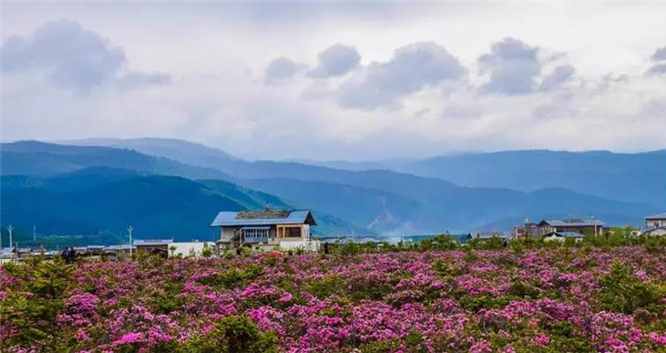
In May, we visited Shangri-La, Diqing Tibetan Autonomous Prefecture. 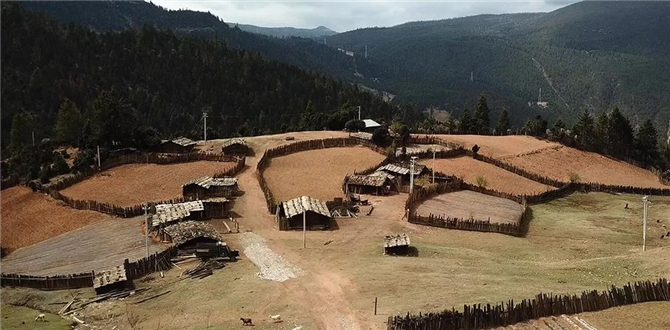
In the Tibetan language, Pudacuo means “taking the ark to reach the other side of the lake”, and it is the first national park in the Chinese mainland. The Shangri-La azalea first blooms in this area. When we got to Pudacuo that day, it was drizzling with breeze. Looking into the distance, we felt Pudacuo had a poetic landscape like that in late autumn. On the basin-shaped pass of the park, the azaleas were in blossom here and there, showing rich colors of red, brown, and others. 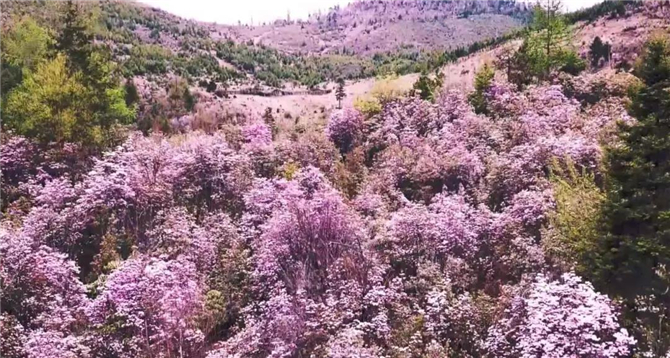
The azaleas were blooming along a winding road. They include many varieties: the jade-like azaleas, the watery flowers, and gorgeous ones. 
Bushes of azaleas grow near the rocks in the mountains... The azalea tree branches wave in the breeze, showing off their rich colors. 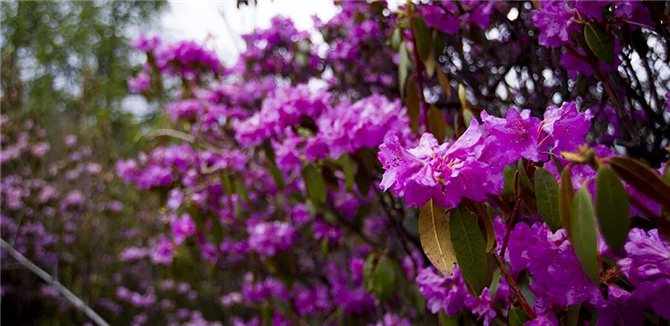
Standing in the azalea bushes, you can see the white clouds, the mountains far away, the herds that graze leisurely. On a hill slope, an old wooden house was coated with light smoke, and someone must be cooking. 
In May and June, Shangri-La presents us a most beautiful sight, with breath-taking flower fields here and there. 
Xiaozhongdian In the Xiaozhongdian town, various wild flowers were blooming: azaleas, euphorbia flowers, galsang flowers, and others. 
Lidiping in Weixi The Lidiping area in Weixi County is beautiful and mysterious, with flower fields waiting for visitors’ coming. 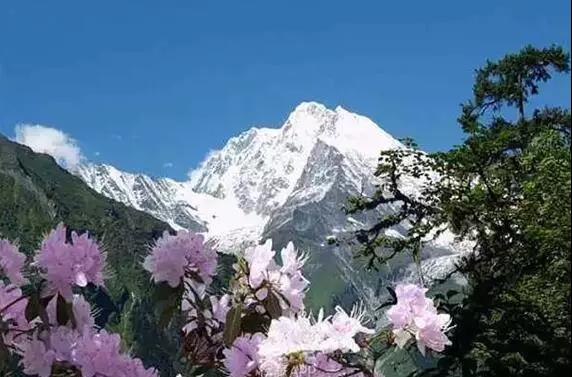
Mt. Baima When the azaleas are in full bloom, the colors decorate the Baima Snow Mountains, forming an amazing landscape. 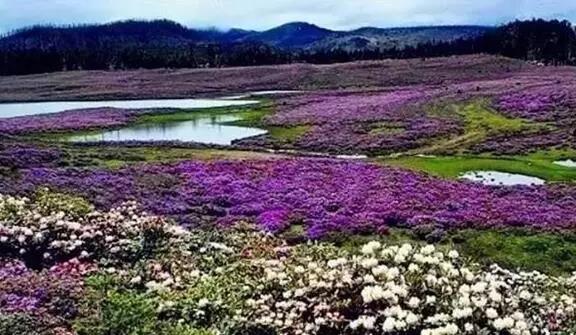
Bigu Tianchi An episode in Chinese film Wu Ji (The Promise or Master of Crimson Armor) was taken in the Bigu Tianchi lake area that features wonderful azalea fields. 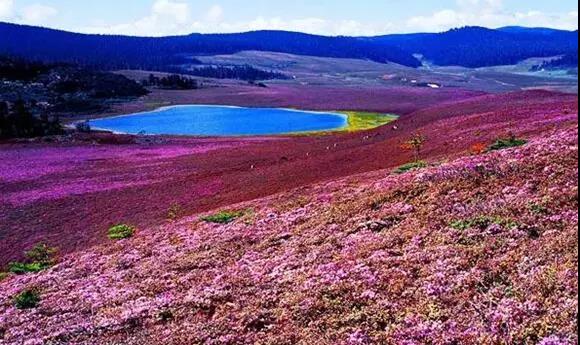
Qianhushan Strolling in the azalea fields in Qianhushan lake area, you can be very relaxed, feeling close to your own Shangri-La. 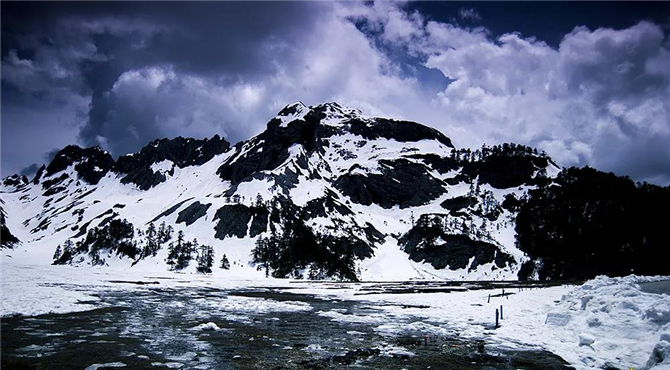
Having toured around the Pudacuo national park, we went to another famed destination in Shangri-La——Balagezong The Balagezong scenic area has an elevation difference of 3,500 meters, with its snow-capped peak standing 5,545 meters above sea level. In the dry and warm valleys, the climate is as mild as that in lower reaches of the Changjiang River. 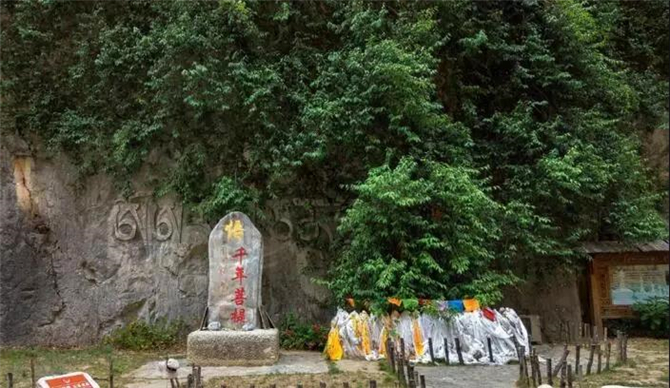
The Balagezong gate lies in the 2,100-meter-high Shui village, where a banyan tree stands for long. 
The courier route near the scenic area used to be the only means for the ancient village to be linked to the outside world. It took villagers one week to reach the county seat. 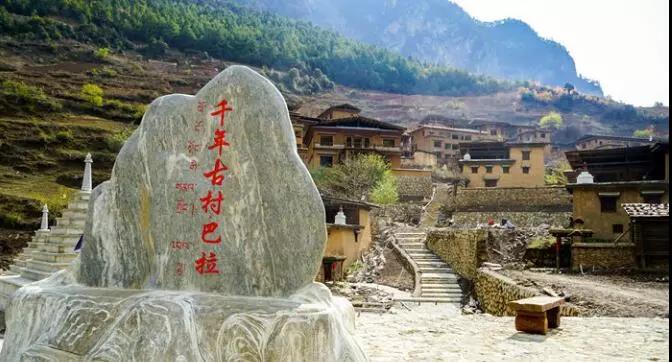
The 1,300-year Bala village is a typical Tibetan settlement surrounded by snow-capped mountains. 
The old wooden houses give off a pleasant smell, and most structures are worn off. 
The Bala village faces the Gezong snow mountain, and its 5,545-meter peak makes the highest point in Shangri-La. The peak is covered by snow all year round. 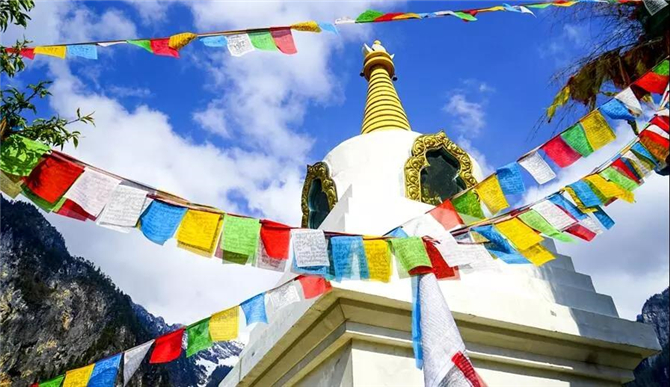
A Tibetan white tower stands near the village of Bala.
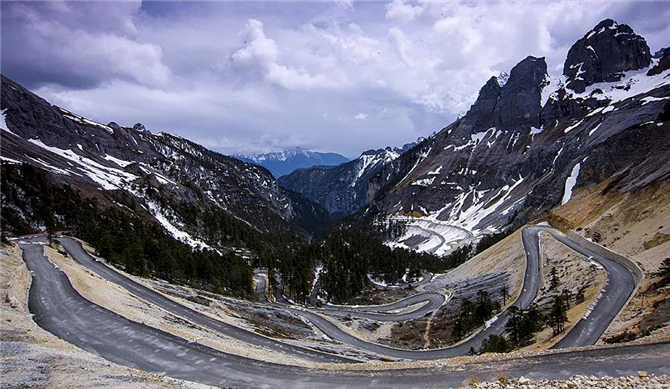
Beyond the village, the 6-meter-wide road features a sharp turn each 200 meters forward. Maybe the hard journey shows our respect to the holy mountain. 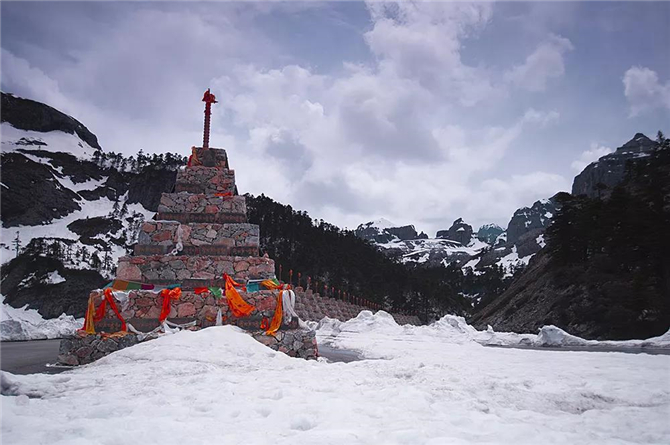
The pagoda-shaped peaks are 4,000 meters above sea level. Covered by snow, they look quiet and sacred. 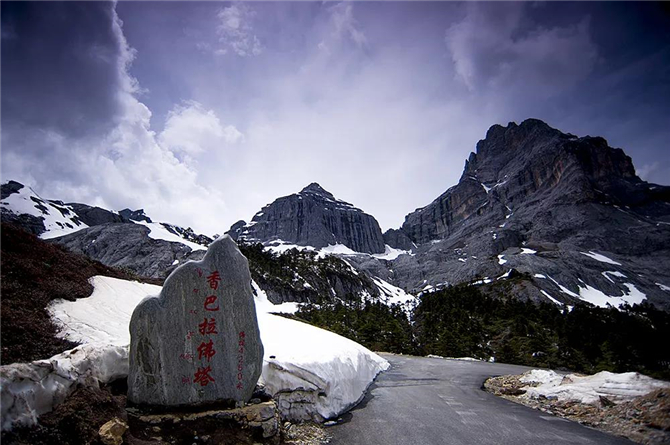
The Shambhala pagoda-shaped peak (M) is coupled by another two snow-capped mountains. They look like a monk and a scripture scroll. 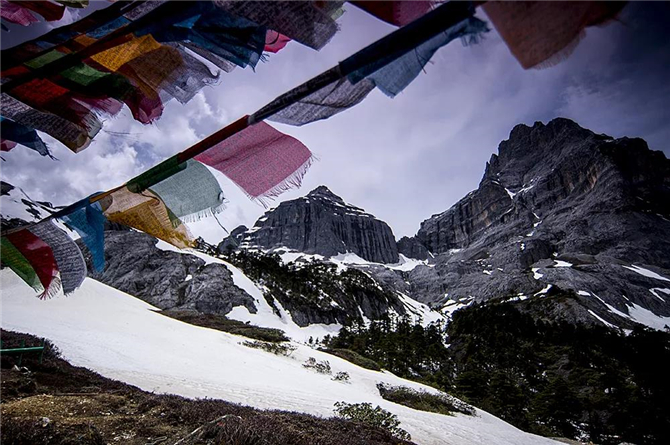
In all, the beautiful Balagezong area has natural pagodas, holy mountains, ancient villages, and folk customs. Text and photos by Zhu Dongran; video by Li Wenjun; translating by Wang Shixue
|



























7740f3b5-9ecb-438e-9052-76cb2d4bb671.jpg)

